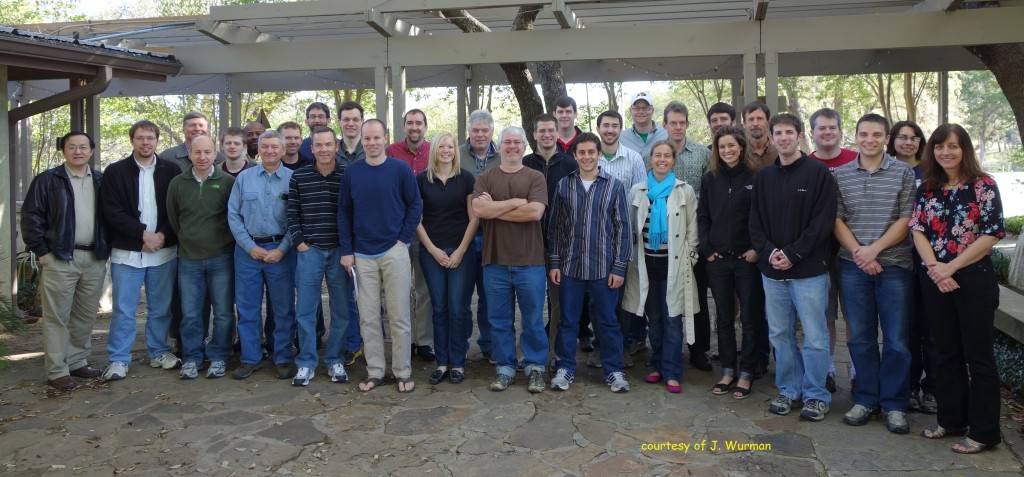It’s been nearly three years since the field phase of VORTEX2 ended. Two weeks ago, a group of about 30 PIs and scientists reunited at a retreat near Austin, Texas. I was asked to send a few tweets from the workshop since the V2 media liason wasn’t in attendance.

At the end of the field phase, the PIs divided up case studies and initiated collaborations. Over the three-and-a-half days of the workshop, participants updated the group on their most recent findings, including low-reflectivity ribbons (a feature whose significance is still not completely clear), an apparent case of bottom-up tornadogenesis, an uber-composite supercell environment generated from over 700 rawinsonde launches, and UAV transects across multiple gust fronts. There were also discussions about lessons learned (particularly from the UAV group), new tools (EnKF analyses have proven to be a popular tool for filling in the spatiotemporal gaps between observations), and directions for the future.
In the past three years, life has changed for many of the participants. Some have changed jobs or institutions, graduated (waves), or had families. In spite of all this mobility, electronic collaborations and conferences have enabled quick dissemination of results. (It took 10 years for some results from the original VORTEX to see print.) Josh Wurman aggregated a list of all the peer-reviewed VORTEX2-related manuscripts published so far: the paper count currently stands at 14, with 9 more either accepted or in press. It was decided that the group will shift focus in the next few years towards synthesis studies rather than individual case studies.
It wasn’t all work, of course. There was time for some fun, including a zip line ride across Lake Ted!